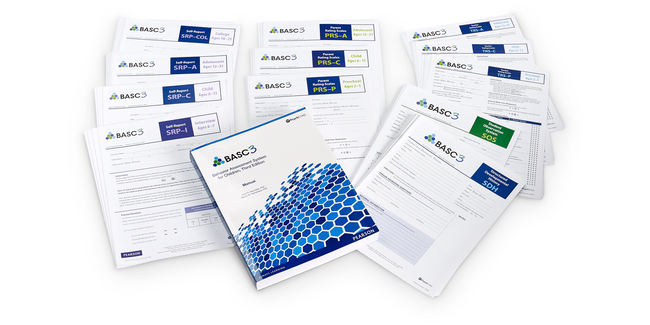A comprehensive set of rating scales and forms, BASC-3 helps you understand the behaviors and emotions of children and adolescents. Guidance on using this test in your telepractice.
Behavior Assessment System for Children | Third Edition
BASC-3
A comprehensive set of rating scales and forms, BASC-3 helps you understand the behaviors and emotions of children and adolescents. Guidance on using this test in your telepractice.‹ View all tests and materials
BASC-3 Q-global Scoring Subscription 1 Year (Digital)
QG1BA3
Qualification Level
B
The subscription can be used for scoring and reporting the TRS, PRS, SRP, PRQ and SOS. The SDH does not require scoring and is not included.
For use with paper forms (not available for On-Screen or Remote On-Screen Administration).
For use with paper forms (not available for On-Screen or Remote On-Screen Administration).
$75.60

